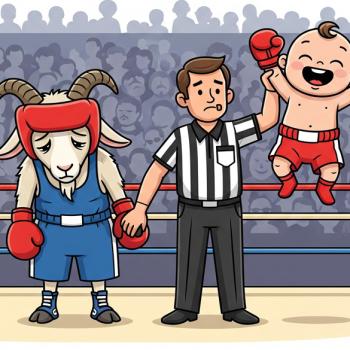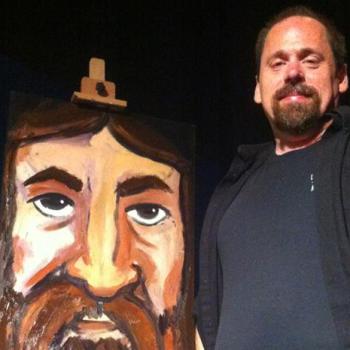
A Palm Sunday Meditation
For the church, Palm Sunday is a large component of the greatest story ever told. The story of the triumphal entry is told every year in most churches. Easter celebrations often start with Palm Sunday. It is the beginning of the most important week in human history. Nearly half of John’s Gospel deals with that week. My question is, as with most of Christianity’s most well known stories, do we in the church take them for granted? We know them so well that I wonder, do we really think about them? In this Palm Sunday meditation, I want to try to help you to see the story with fresh eyes. On the surface it looked like Jesus was finally getting the respect He deserved, but looks can be deceiving.
The Set Up
Jesus had just finished his encounter with the reformed and redeemed tax collector, Zacchaeus. Jesus finished this out by saying, ““Today salvation has come to this house, since he also is a son of Abraham. For the Son of Man came to seek and to save the lost.” (Luke 19:9-10 ESV) Redemption had come to the house of Zacchaeus, and it was time to celebrate, but it seems that not everyone was in the mood to celebrate, because Jesus next taught the somewhat scathing Parable of the Ten Minas. We won’t have time to get into that in this article, but the introductory verses figure into our theme for today.
Luke 19:11(ESV) “As they heard these things, he proceeded to tell a parable, because he was near to Jerusalem, and because they supposed that the kingdom of God was to appear immediately.” These were the expectations of the people and those expectations will contribute mightily to the people entirely missing the point.
The King’s Ride
Having finished His parable, it was time to move on to Jerusalem, and for Jesus, this would be basically the last time. The town would filling up to overflowing in this week as Jewish people from all over the world would flood into Jerusalem for the Passover. The population of Jerusalem was about 250,000 at this time, but at Passover, that number would swell ten times to 2.5 million.
Just a short distance away, in Bethany, Jesus sent two of his disciples into a village on a mission. Jesus told them, “Go into the village in front of you, where on entering you will find a colt tied, on which no one has ever yet sat. Untie it and bring it here.” (Luke 19: 30 ESV)This is one of those areas where I think people take this passage for granted. Don’t do that today, instead let me show you a modern equivalent.
Imagine you, just bought a brand new little car, maybe like a Smart car. You have it parallel parked by the side of the road near your home. One day, to your surprise, you see two guys outside trying to hot wire it. Are you going to react calmly? My guess is that would be a no, but that is in effect what was happening here. Donkeys were a mode of transportation, and it would have looked for all the world like these two disciples of Jesus were stealing it.
Of course Jesus would never ask anyone to steal anything and he had that covered. Jesus told them, “If anyone asks you, ‘Why are you untying it?’ you shall say this: ‘The Lord has need of it.’” (Luke 19:31 ESV) No surprises here. Everything happened just as Jesus said it would, and when the owner of the donkey heard the disciples say “The Lord has need of it,” he left them take it. This little incident gives us a little more proof of the sovereign wisdom of Jesus.
The Ride Begins
The disciples had to be filled with anticipation. This was no ordinary day. This would be the day when Jesus would rise up, or so they must have thought. It was what everyone else was thinking. The Messiah was here. They put their cloaks on the donkey, putting a barrier between Jesus and His unclean animal “ride.” Then the people around Him began putting their cloaks and palm branches on the road, so the unclean animal “ride” would not get his hooves dirty on the street. The people lining the streets began shouting praises to God for all the mighty works they had seen in Jesus. They were saying, “Blessed is the King who comes in the name of the Lord! Peace in heaven and glory in the highest!” It had to be almost surreal. After the years of abuse at the hands of the people, Jesus was finally getting the appreciation he deserved.
It would be short-lived.
Hosanna to the Son of David
Five days from that moment of praise, Jesus would be dead in a tomb, awaiting His resurrection on the third day. Some of the other Gospels say on Palm Sunday some of the people were shouting “Hosanna to the Son of David! Blessed is he who comes in the name of the Lord! Hosanna in the highest!” This means these people knew exactly who Jesus is. Hosanna means “Save, Please!” This means they were acknowledging Jesus as Savior, and the phrase Son of David, means they were acknowledging that Jesus is their long awaited Messiah. Essentially in that moment at least some of the people knew that Jesus was both Savior and Lord.
From Hosanna to Crucify
So how did people go from Hosanna on Sunday to Crucify by Friday? I believe the answer comes down to two things. Their incorrect expectations and they missed the donkey. Remember at the beginning of the Parable of the Minas, it said “they supposed that the kingdom of God was to appear immediately.” This is what the people wanted. They had this idea that when the Messiah came, He would be a military leader who would overthrow Rome, put them in power, and make them the next world superpower.
Their expectations were too small. Jesus didn’t come to overpower and overthrow people. He told us why He came at the end of his recorded time with Zacchaeus, remember? “For the Son of Man came to seek and to save the lost.” Jesus didn’t come to overthrow a nation. He came to overthrow hell and death and the grave. The Kingdom of God was here, but it was a different Kingdom and He was a different kind of King. The problem is they missed it, because the missed the donkey.
Big Man On a Little Horse
There was always something that didn’t quite read right to me in the story of the triumphal entry, and that was Jesus riding in on a donkey’s colt. It seems almost cruel for Jesus to ride on such a small animal. Why would Jesus do such a thing? Why not a larger animal—a full grown donkey, maybe even a horse? I’ll tell you why. It was prophesied. This was foretold by the prophet Zechariah around 520 years before Jesus was born. “Behold, your king is coming to you; righteous and having salvation is he, humble and mounted on a donkey, on a colt, the foal of a donkey. (Zechariah 9:9 ESV).
It’s my understanding that if a king came riding into town ready to make war, he would ride in on a mighty stallion—a warhorse, but if he came in peace he would come in on the most unassuming ride he possibly could. Jesus didn’t come to make war on Rome. Jesus’ battle was Spiritual, for the salvation of souls. If the people had been paying attention, they would have caught the symbolism.
Jesus was doing exactly what God had told us He would do throughout the Old Testament Scriptures and especially the prophets. On that first Palm Sunday, the people missed the donkey. As a result, they thought they were going to get what they wanted—money and power and position, and so they shouted “Hosanna.” It seems through the course of the week they realized Jesus wasn’t going to do what they wanted, and so “Hosanna” became “Crucify.”
Expectations
Expectations are a tricky thing. When the people saw Jesus wasn’t going to conquer their enemies, He wasn’t the Messiah they wanted. Their answer was to do away with Him, as if there would be another Messiah who would do what they wanted. There is only one Messiah, the Lord Jesus Christ. That was true then and it’s true to this day. What do we do when God doesn’t do what we think He should? Do we hold on to faith and trust Him, or do we give into our doubts? If God can only be God if He does what we want, He’s not really God in our lives, we are. We need to release our man-made, selfish, expectations, and let God’s Word show us what to expect.
That first Palm Sunday the people were praising Jesus. He finally seemed to be getting the respect He deserved. The people were celebrating, but Jesus was weeping. He said of the city of Jerusalem, “Would that you, even you, had known on this day the things that make for peace! But now they are hidden from your eyes. For the days will come upon you, when your enemies will set up a barricade around you and surround you and hem you in on every side and tear you down to the ground, you and your children within you. And they will not leave one stone upon another in you, because you did not know the time of your visitation.” (Luke 19:42-44 ESV)
Jesus knew what was coming. He wasn’t weeping for Himself. He was weeping for them. His time of suffering would soon end, but the people would rebel against Rome about 40 years later, trying to do what they wanted Him to do, something God never said He would do. The Roman answer to their rebellion was to crush them and devastate them. When it comes to expectations, we need to learn the lesson Jesus taught in His prayer in Gethsemane. He was praying for God to save Him from what was coming next, but His final request was, “Not my will but yours be done.” May we all carry the same attitude, holding on to our expectations lightly and holding on to God tightly.
He is Worthy
As Jesus was finishing his ride into Jerusalem, the Pharisees were once again upset with Him. They heard what the crowds were saying about Him being the Son of David, and they told Jesus, “Teacher, rebuke your disciples.” In other words, “What they are saying is blasphemy. Tell them to shut up!” That’s the thing with Jesus. He is the Messiah, the Savior, and people’s attitudes toward Him do not change who He is even a little bit. Jesus didn’t have to rebuke His disciples, because what they were saying was true. It is true. He is Lord and He is worthy of praise. Jesus may not have been what they wanted, but He is exactly what they, and we, need. So instead of rebuking His disciples for saying He is the Messiah, which would have been the equivalent of asking them to lie. His response was telling. He answered, “I tell you, if these were silent, the very stones would cry out.”
He was worthy then. He is worthy now. Whether or not He is what we want, He is exactly who we need. So don’t miss the donkey. He came just as the prophets foretold, and everything God’s Word says about Him is true. So trust Him and praise Him and proclaim Him. He alone is Savior. He alone is Lord. Don’t let the stones cry out for you!













